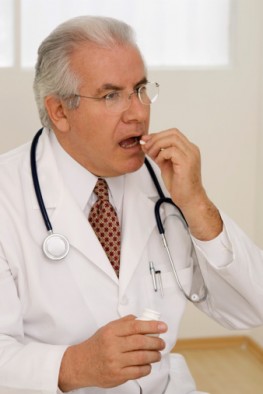Drug Dependent Doctors, Nurses Put Patients at Risk
30April2014
30April2014

The medical community is not immune to the country’s prescription drug epidemic. An investigation by USA Today found that more than 100,000 doctors, nurses, medical technicians, and health care aides are addicted or abusing prescription drugs. Their behavior puts not only their own health at risk, but the safety of their patients as well.
USA Today reports that “America’s prescription drug epidemic reaches deep into the medical community.” The newspaper based its report on government data and independent studies, interviews, and records of those caught stealing drugs. The problem is commonplace but often difficult to detect among medical professionals who have access to narcotics. USA Today identified hundreds of cases in recent years in which physicians and other health care workers were disciplined or prosecuted for medical misconduct based on substance abuse. It found many examples of healthcare providers who struggle with addictions to prescription painkillers, especially Oxycodone and fentanyl.
Drug use by health care providers raises serious concerns about the safety of patients in their care. A doctor or a nurse working under the influence of drugs may commit preventable medical errors, leading to medical malpractice claims.
According to the most recent drug use data released in 2007 by the U.S. Substance Abuse and Mental Health Services and Administration, approximately 103,000 doctors, nurses, and other medical staff were using or dependent on illicit drugs per year.
When the University of Tennessee Medical Center installed video surveillance cameras and a medication accounting system to crack down on drug diversion, it revealed a problem that was bigger than anyone suspected. The hospital’s then-manager of controlled substance surveillance said the surveillance was catching at least one health care provider per month stealing drugs, and other hospitals that take similar steps have similar results.
A number of patient infection outbreaks have been linked to health care workers who used sterile syringes and injections for themselves. For instance, a hospital technician in New Hampshire was caught using patient syringes to inject himself with painkillers and refilling the syringes with saline, exposing close to 8,000 people to possible hepatitis infection.
In other cases, healthcare workers have tampered with vials and injections to steal drugs. The focus in such cases was the number of patients potentially contaminated, obscuring the issue of increased drug use by medical staffers.
Doctors and other healthcare providers are not customarily subject to random alcohol or drug tests. Many hospitals are not using adequate technology and processes to track addictive drugs. Even medical facilities that catch employees abusing drugs do not consistently report the behavior and license suspensions are rare, USA Today reported.
In Washington, providers can seek help through approved programs, including the Washington Physicians Health Program (for physicians, physician assistants, podiatrists, dentists, and veterinarians) and the Washington Health Professional Services Program (for nurses, nurse practitioners, and nurse anesthetists). These programs are designed to help address the unique concerns of providers struggling with addiction, including treatment referral, monitoring, and community outreach.
The Washington Health Care Quality Assurance Commission investigates complaints (from the public or the health care community) about health care providers, including concerns about drug abuse and addiction. In many cases, an investigation is the impetus for a provider to seek help, hopefully avoiding adverse consequences for the public and the provider.
The attorneys of Morrow Kidman Tinker Macey-Cushman, PLLC represent patients who have been harmed by preventable medical errors in Seattle and across Washington.